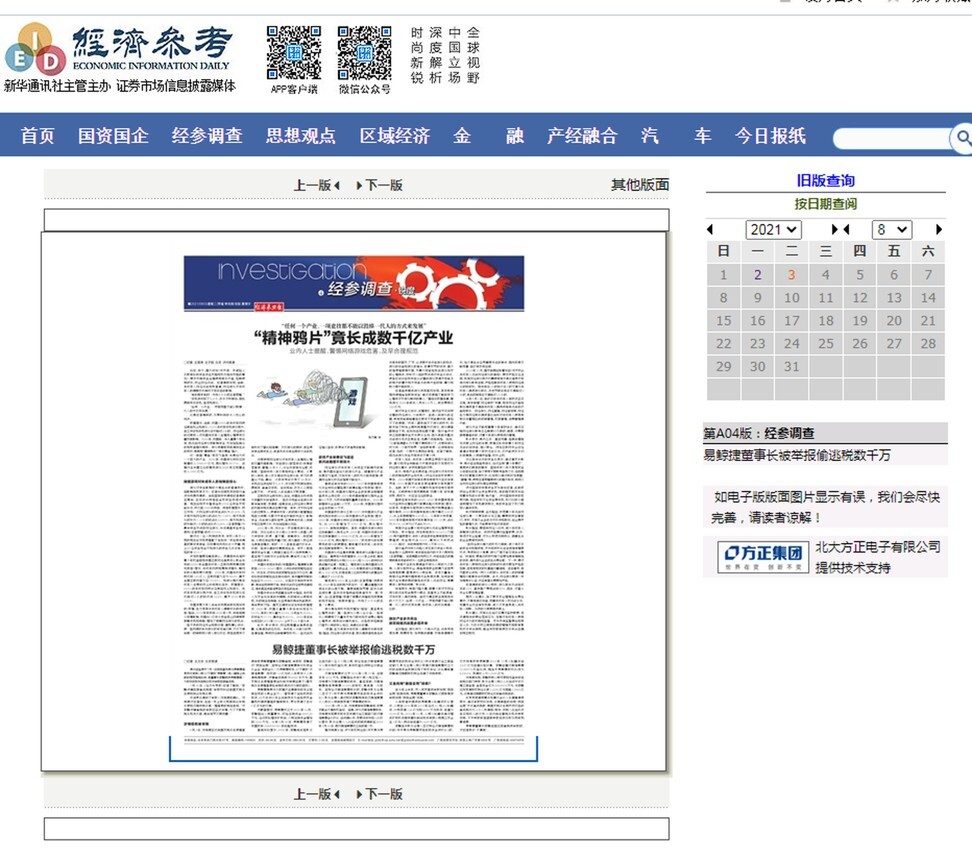
Chinese newspaper publishes, and then deletes, report that called video gaming ‘spiritual opium’, hitting Tencent stocks
- The report by the Economic Information Daily singled out Tencent and its popular video game Honour of Kings
- Shares of Chinese video gaming giants Tencent and NetEase tumbled by at least 10 per cent in the morning session in Hong Kong after the report was published
“The report is certainly not a representation of the [central government’s] official stance,” said the source, who declined to be identified because he is not authorised to speak to media.

Neither the newspaper nor Xinhua immediately responded to inquiries for comment.
By Tuesday evening, the article was republished to the newspaper’s website, but with the references to “spiritual opium” removed from both the headline and body.
The report, which was based on the newspaper’s survey of students at a junior middle school in southwest China’s Sichuan province, was widely shared on Tuesday by Chinese social media users and commercial websites.
Nevertheless, investors were unnerved by potential policy signals from Beijing about a crackdown even though both Tencent and NetEase have responded.
China’s gaming stocks fall as state media renews ‘spiritual opium’ censure
Without commenting on the Economic Information Daily article, Tencent on Tuesday announced new measures that will ban players aged under 12 from spending money on video games, according to a statement published on the Shenzhen-based company’s official WeChat account. It will also further limit the play time for underaged players, from 1.5 hours each day and three hours on holidays, to one hour per day and two hours on holidays.
The company said it will also step up its verification system for player identity, upgrading its “midnight patrol” program that verifies suspicious accounts to an all-day system, and clamp down on cheats that underaged players use to access games, according to the Tencent statement.
Tencent called on the whole video gaming industry to discuss the possibility of banning all players under 12 from playing games and to do research on an age rating system for video gaming.
Netease also said it will launch a campaign to create a “healthy and green” cyberspace environment for the country’s teenagers this summer, without elaborating.



